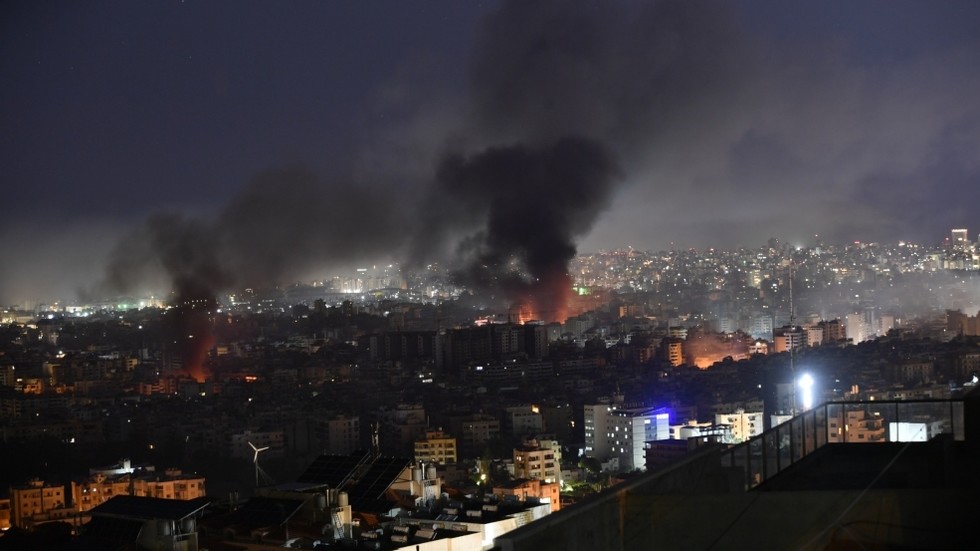On Sunday, the Israel Defense Forces (IDF) intensified their bombing campaign in Beirut, resulting in significant destruction and a powerful explosion in the Lebanese capital. The air raids continued throughout the night, with Israeli Prime Minister Benjamin Netanyahu pledging to escalate military efforts against Hezbollah, the militant group that has launched rockets and mortar fire into northern Israel. Reports from Al Jazeera’s Laura Khan described the explosion in Beirut’s southern suburbs as “absolutely massive,” corroborated by social media footage showing a bright blaze followed by a strong blast. The IDF confirmed that their targets were specifically Hezbollah installations in the area.
The escalation in hostilities between Israel and Hezbollah has been ongoing, with the IDF ramping up their bombing campaign against Lebanon since late September. This was accompanied by ground incursions across the border, a strategy aimed at dismantling Hezbollah’s operational capabilities. Israeli authorities have justified these military actions by stating that their primary objective is to secure northern Israel, thereby facilitating the safe return of the 70,000 residents who were forced to flee due to the ongoing attacks from Hezbollah. The scale of the violence has been devastating, with the Lebanese Health Ministry reporting over 2,000 fatalities and more than 1.2 million people displaced as a result of the conflict.
Since the conflict reignited, the humanitarian consequences for Lebanon have been dire. The IDF’s airstrikes have not only led to considerable loss of life but have also devastated infrastructure, contributing to a rapid displacement of families seeking safety from the violence. The humanitarian crisis continues to escalate as international organizations struggle to respond to the overwhelming needs of displaced persons and those injured in the bombardments. The destruction of homes, essential services, and medical facilities further complicates the situation, leaving many without access to basic needs and care.
The international community has expressed concern about the violence and the potential for further escalation. Efforts at diplomacy have been complicated by the deep-seated grievances on both sides, with calls for a ceasefire often overshadowed by ongoing military actions. Many observers worry that the current trajectory of hostilities may spiral out of control, which could lead to a broader regional conflict. The involvement of various external actors adds another layer of complexity, with different nations backing either Israel or Hezbollah, thus impacting global diplomatic efforts aimed at de-escalation.
Media coverage of the conflict has highlighted the stark realities faced by civilians caught in the crossfire. Journalists on the ground report not only on military developments but also on personal stories of loss and resilience amidst the chaos. The images and narratives emerging from this conflict remind the global audience of the human cost of war, bringing attention to the need for a humanitarian response. Many activists and organizations are calling for greater support for those displaced by the violence and for international pressure to seek a peaceful resolution to the ongoing hostilities.
As the situation remains fluid, the ramifications of the conflict will likely persist both within and beyond Lebanon’s borders. The IDF’s actions in Beirut and other parts of Lebanon represent a significant military commitment, indicating that Israel is prepared to maintain its offensive stance until it perceives a reduction in the threat from Hezbollah. Both parties involved face crucial challenges ahead, as the prospects for a peaceful resolution appear remote amidst the hostilities. In light of the high human toll and ongoing suffering, there is an urgent need for renewed diplomacy aimed at de-escalating tensions and ultimately reaching a stable and lasting peace.

